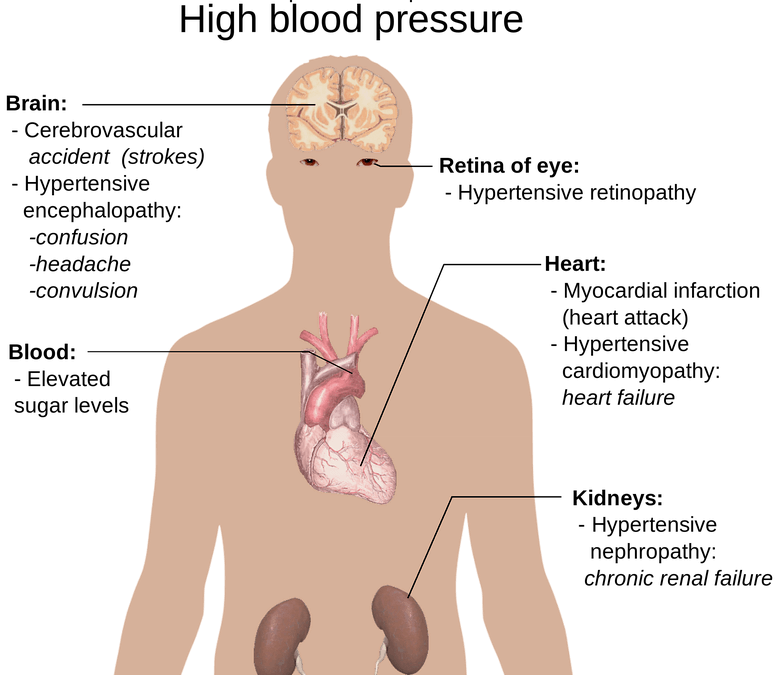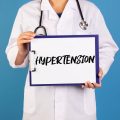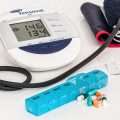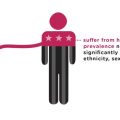Table of Contents
What is hypertension? This is one of the common questions that many people ask. It affects one out of four people in the U.K. People usually aged 60 or older have hypertension. What is hypertension is a thing that you should ask, mainly because not all people know the symptoms which would lead them not knowing that they have this disease. Hypertension would put constraints on your blood vessels when the blood will flow around your body. Half of strokes and heart attacks are connected to high blood pressure, this is what is hypertension. Luckily, you can do a lot to fully protect your health, you can do this by getting your blood pressure checked and maintain its condition. If you are still unsure, this will help you know what is hypertension.
What is Hypertension: What You Need to Know
To fully understand what is hypertension, you need to look at it from the medical side. High blood pressure and hypertension are just the same things. When your heart pumps, the blood will be forced to travel through your arteries. During blood pressure measurement, it will show how the blood is pressing hard against the artery walls. Your heart is working hard to pump blood if you have high blood pressure. Millimeters of mercury (mmHg) is the official measurement of the blood pressure. When you are viewing the blood pressure monitor, you can see the instrument going up and down.
Systolic vs. Diastolic
A sphygmomanometer is the blood pressure monitor. The word is rooted from the Greek word “sphygmos” or pulse and add that to the French word “manometer” or the “pressure meater.
In reading the blood pressure, it has two numbers:
- Systolic pressure: this shows the force on your arteries during a heartbeat.
- Diastolic pressure: this shows the force on your arteries between heartbeats.
Blood Pressure Readings
The mixture of these number is typically the blood pressure result. The first thing that comes up is the systolic pressure and usually is higher than the diastolic. If you have 120 systolic and 90 diastolic, your nurse or doctor will state that your blood pressure is “120 over 90” or will be written as 120/90 mmHg.
Your health care professionals should be the one to take your blood pressures especially if you believe you have hypertension. This would have followed-up readings that you can take at home. Your health professionals would tell you how to take the readings at home.
In surgery, the hypertension is set at 140/90 mmHg or even higher, while 135/85 mmHg or higher if you are doing home readings.
What is Hypertension:Non – Modifiable Risks
You need to know the risks as well as its causes, to fully understand what is hypertension. In most cases, we do not really know what is hypertension, but we know what would increase your risks. Here are some other risks that you should know about. These are non-modifiable risks:
- Age: This illness is more common when people start to age.
- Genes: Caribbean or African-bound families are more likely to have hypertension, especially because high blood pressure could run in your family.
- Other medical conditions: Other conditions that could increase your high blood pressure includes sleep apnoea, kidney problems, hormone or connective tissue conditions, or lupus.
- Pregnancy: There are varied issues that could happen during your pregnancy. You always need to contact your midwife or GP to know that everything is okay.
Medications
The following are the medications that could also raise your high blood pressure:
- The combined oral contraceptive pill
- Steroid medication
- Non-steroidal anti-inflammatory drugs (NSAIDs) such as ibuprofen and naproxen
- Over-the-counter cough and cold remedies
- Some herbal remedies particularly those containing liquorices
- Some recreational drugs such as cocaine and amphetamines
Changing Your Lifestyle
You can also ask your local pharmacist or doctor on how the following medication might affect your blood pressure.
The way that you live will have a great effect on your blood pressure, however, changing your lifestyle would also reduce the risk of hypertension. If there are non-modifiable skills, there are also modifiable skills.
Not exercising, eating too much salt, smoking, and being overweight are some other things that could potentially increase your blood pressure. It would also include taking recreational drugs, not getting enough sleeps for a long time, and drinking too much alcohol.
Health Issues Linked with Hypertension
Your heart is mainly affected by your hypertension. It would also include other parts of your body and your brain. Your hypertension is also linked to the following heart conditions:
- Heart attack
- Heart failure
- Stroke
- Kidney disease
- Eye damage
- Painful legs (peripheral artery disease)
- Vascular dementia
You can lower your blood pressure, this is a great news for many people. In doing this, you can also lower the risks in having the aforementioned health problems.
What is Hypertension: Symptoms
In most cases, there is no symptom for your hypertension. Even if your blood pressure is high, you might still feel life.
You should have your blood pressured checked by a health representative to know whether or not you have hypertension. Unfortunately, this is the only way for you to do so. Some community centers or library might give blood pressure checks, especially in special events. Your hypertension has reached a high level as well as considered as an emergency if you already see symptoms appearing. But, high level of high blood pressure is very rare. However, there are the symptoms that you might experience:
- Severe headache
- Feeling confused or anxious
- Blurred vision
- Seizures (fits)
- Chest pain
- Fast or irregular heartbeat
- Feeling short of breath
- Nausea (feeling sick)
- Vomiting
- Heavy sweating
- Being unconscious
You may need to intake medications to get your blood pressure down, this might be said by your doctor. You need to take in the medications as given by your health professionals, so you can get the needed benefits. You need to do this even though you are feeling fine. If you believe there are side effects, tell you doctor about it for him/her to adjust the medications.
You also need to have a healthy lifestyle in order to prevent or manage your hypertension, these are some of the steps that you need to take.
It’s also just as important to follow a healthy lifestyle in order to manage or prevent hypertension. Try to take the following steps:
- Keep a healthy weight
- Stay active and take exercise
- Follow a healthy diet and cut down on salt
- Stop smoking
- Avoid drinking too much alcohol or caffeine
- Find ways to relax and manage stress
It is very difficult to change your lifestyle, however, changing it would give you outstanding benefits. By now, we should have already answered the question, what is hypertension. You can do some changes in your life that would fully manage your blood pressure as well as giving you more confidence, energy and great well being.






 I love to write medical education books. My books are written for everyone in an easy to read and understandable style.
I love to write medical education books. My books are written for everyone in an easy to read and understandable style.